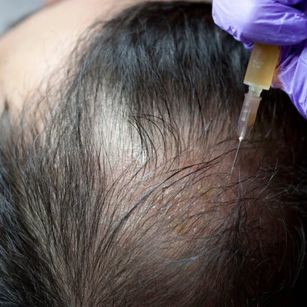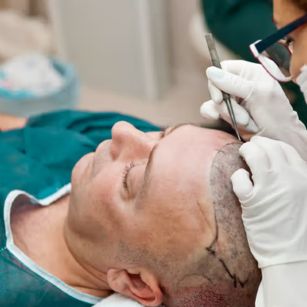
- By Dr. Ravali Yalamanchili
- 2024-01-31
Melasma is one of the pigmentation irregularities, a type of hyperpigmentation characterised by brown or grey macules/patches on the face. It is not a major health issue, but an aesthetic concern that can be an emotional distress.
If you or your loved one has melasma, you probably would have many questions in mind regarding it and melasma treatment in Hyderabad.
This post provides expert answers to 11 questions on melasma and its treatment, most frequently asked to Dr. Ravali Yalamanchili: Best Dermatologist in Hyderabad, practising at Neya Dermatology & Aesthetics. Continue reading to learn more about melasma.
1. What facial treatments are best for melasma?
Regular facials performed by skin doctor in Hyderabad at Neya Dermatology & Aesthetics, that can help improve the overall health and appearance of the skin as well as fade out melasma. However, chemical peeling with Cosmelan peel is the best facial treatment for melasma. The Cosmelan peels are made up of retinoic acid, azelaic acid, phytic acid, kojic acid, arbutin, and ascorbic acid.
2. How do dermatologists remove melasma?
The most common dermatologist-recommended treatments proven to be effective for melasma removal include skin-lightening topicals containing hydroquinone, niacinamide, azelaic acid, kojic acid, cysteamine, tranexamic acid, and rucinol; chemical peels, microdermabrasion, and laser therapy. To know which melasma treatment option you will receive from a dermatologist, schedule a consultation with a pigmentation doctor in Hyderabad, Dr. Ravali Yalamanchili and first get your skin assessed thoroughly.
3. What is the root cause of melasma?
Melasma can be caused by both internal and external factors. The major causes are frequent overexposure of the skin to the sun’s UV radiation or infrared radiation and the hormones. Those who have increased levels of estro-gen, progest-erone, or melanocyte-stimulating hormones have been observed to develop melasma. Family history or genetics can also be the culprit for melasma occurrence.
4. Which vitamin deficiency causes melasma on the face?
As per some research studies, Vitamin B12 deficiency can cause melasma on the face. It is suggested that this vitamin deficiency can reduce the intracellular reduction potential that results in the oxidation of the reduced glutathione and a decline in the GSH/GSSG ratio. This further stimulates the epidermal melanocytes to produce extra melanin.
5. What food is bad for melasma?
A poor diet can be a significant contributor to the melasma appearance on the skin. Some foods can trigger or worsen melasma and must be avoided. The foods studied to be bad for melasma include copper-containing foods (such as nuts, whole grains, shellfish and oysters, organ meats, and potatoes), high glycaemic index foods (such as refined carbohydrates and sugar-loaded foods), soy-based products (such as tofu, soy protein isolates, and soy milk), and dairy products (particularly skim milk).
6. Does melasma go away with treatment?
Melasma is difficult to treat. For some people, melasma tends to be a temporary concern and resolves on its own with sun protection while for others it may be permanent and require treatment. Melasma-affected people may respond to the treatment for melasma within a few months. But there is no particular treatment for melasma that will make melasma automatically disappear, which means removing the melanin pigment from the skin. Some preventive measures when followed with dermatologist-recommended treatment might make melasma disappear.
7. What is the fastest approach to treating melasma?
Although melasma is treatable at home, the best and quickest solution to get rid of melasma on the face is typically through treatments suggested by a dermatologist. A dermatologist often uses products containing hydroquinone, corticosteroids, and/or tretinoin as the first line of treatment for melasma or prescribes kojic acid and azelaic acid-containing topicals. In case, the topical medications fail to work, the dermatologist may recommend these best ways to treat melasma: chemical peel, microdermabrasion, or LED light/laser therapy, and cosmelan peel.
8. Does Cosmelan remove all pigmentation?
Cosmelan is a unique chemical peel capable of addressing all kinds of hyperpigmentation quickly and effectively. It is made of a powerful combination of acids that works to lighten, brighten, and unify the complexion of individuals of any skin type and tone. It contains the depigmentation agents that work to inhibit the Tyros-inase enzyme which has a role in stimulating melanocytes to produce melanin. The most challenging form of hyperpigmentation is melasma often triggered by pregnancy or hormonal changes.
Cosmelan face peel for pigmentation removal in Hyderabad provides impressive results for melasma, even for dark-skinned people. It can safely remove any kind of unwanted pigmentation like post-inflammatory hyperpigmentation, freckles, brown marks, sun spots, and melasma in people belonging to any ethnic group.
9. Is laser effective for safe pigmentation removal?
Lasers are effective in treating different forms of hyperpigmentation but come with some side effects. If one opts for laser pigmentation removal in Hyderabad, one can expect to experience side effects such as skin redness, slight swelling of the treated area, and mild to moderate skin irritation, similar to the feeling of having a mild sunburn.
Lasers are usually not safe for hormonal pigmentation- melasma or chloasma treatment. It may make this kind of pigmentation even worse. Especially dark-skinned people, when treated for melasma with a laser, may have a greater chance of developing post-inflammatory hyperpigmentation.
Rarely, laser skin resurfacing can cause serious side effects such as burning, scarring, or changes in pigmentation of the skin.
10. Is Cosmelan safe for dark skin?
Yes, cosmelan pigmentation treatment has proven to be 100% safe and effective in reducing unwanted pigmentation by approximately 95% in people with any skin type and tone, including the darkest skin tones.
11. How do I take care of myself while living with melasma?
You must follow some preventive measures to avoid worsening of your melasma and continue with the treatment and management advice given by your dermatologist. You must avoid exposing your face to direct sunlight for a long period and even limit the use of screens emitting radiations like LED screen television, computer/laptop, and mobile phones.
If you are thinking of getting contraception, choose the method of birth control that does not involve hormones. Do not take birth control pills. If having melasma or don’t want it to develop, you must not apply make-up or other cosmetics that irritate the skin, have medications that impact melasma, use scented soaps, do waxing, or use tanning beds. Moreover, you must ensure that you are receiving the right treatment for your condition by consulting dermatologist, Dr. Ravali Yalamanchili, at Neya Dermatology & Aesthetics, Best Skin Clinic in Hyderabad who will confirm the diagnosis.
Content Reviewed and Updated by Dr. Ravali Yalamanchili on 15th July 2024




